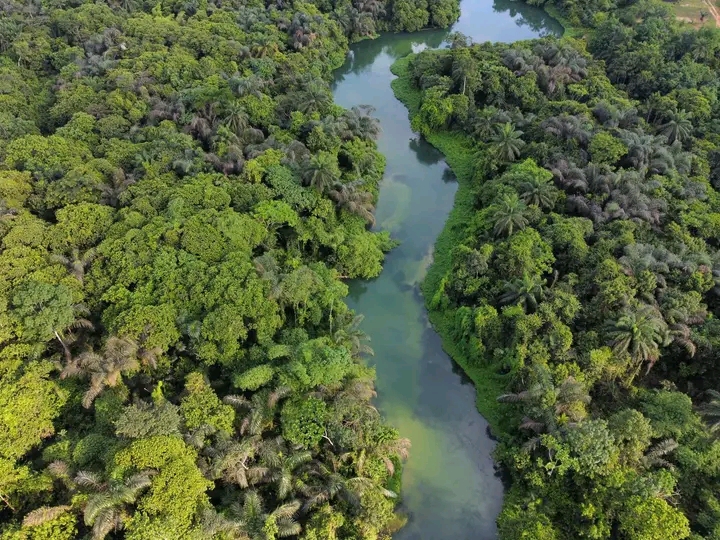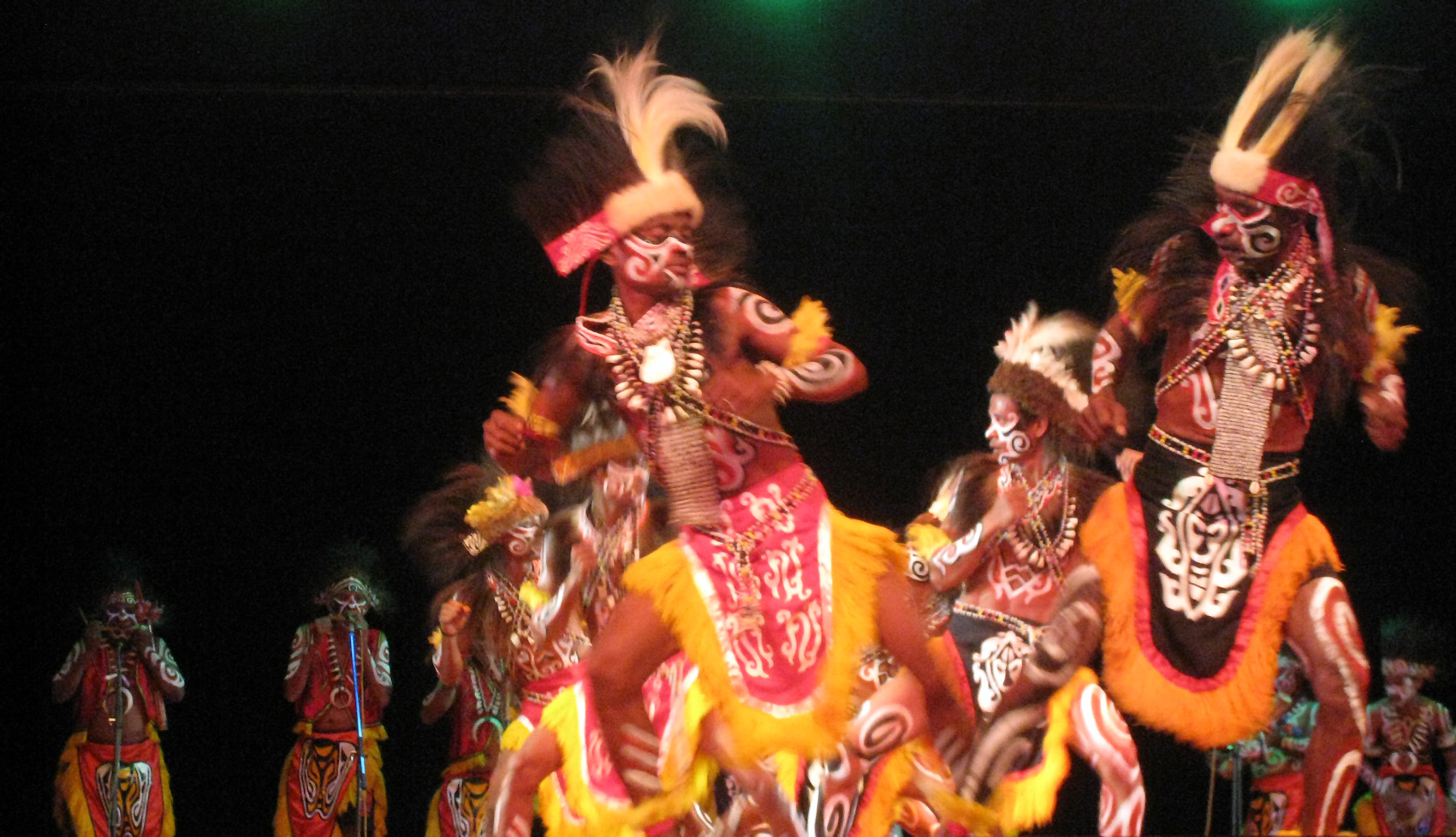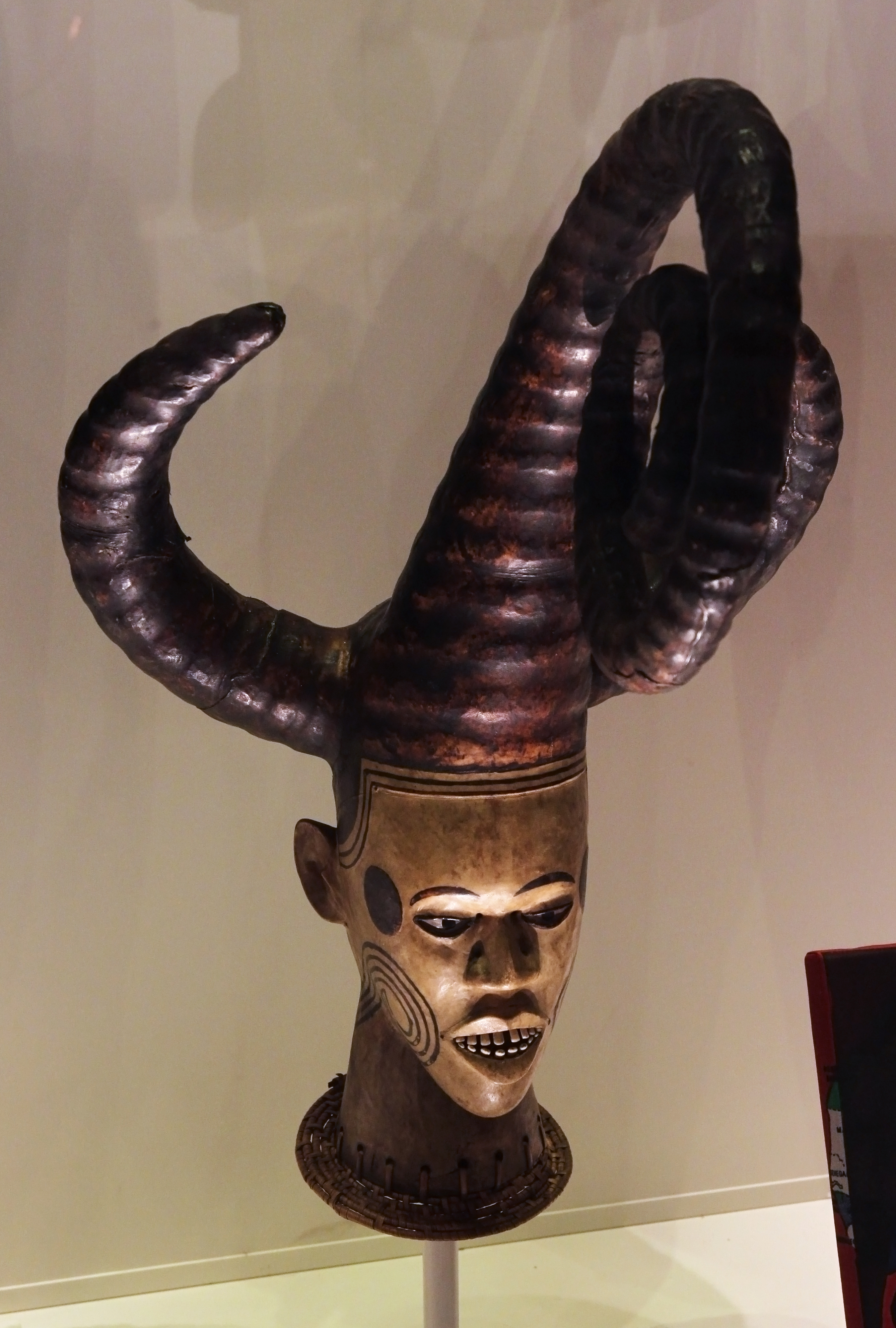|
Ikwuano
Ikwuano is a Local Government Area of Abia State, Nigeria. Its headquarters is in Isiala Oboro. The name 'Ikwuano' etymologically indicates that there are four different ancient kingdoms that make up the community called Ikwuano. These include Oboro, Ibere, Ariam/Usaka and Oloko. The postal code of the area is 440. It is one of the five LGAs that make up the Abia Central Senatorial District. As at 2022, the executive chairman is Stephen Mpamugo. Samuel Onuigbo currently serves as the Federal Representative representing Ikwuano/Umuahia North and South Federal Constituency at the House of Representatives. History Ikwuano LGA was among the new local government areas that were created on 27 August 1991 when the General Ibrahim Babangida's Administration created Abia State from the old Imo State. It was carved out of the defunct Ikwuano-Umuahia of the Old Imo State. The present Ikwuano Local Government Area was part of the Bende Division in the then Southern Province created by ... [...More Info...] [...Related Items...] OR: [Wikipedia] [Google] [Baidu] |
Ibere
Ibere is one of the four clans in Ikwuano Local Government Area, Abia State, Nigeria. It borders Oboro to the west, Bende to the north, the Isuogu (Ariam/Usaka and Oloko) to the south and Nkari (a clan in Ini LGA) to the east. It is one of 18 Igbo clans of the Old Bende Division. Ibere was classified in the Ohuhu-Ngwa cluster of the Southern Igbo area by Forde and Jones. Origin It is generally agreed that the founders of the community in its present situation came from a place called Okwa Ankasi, but no one can say where it is located. It is always indicated by a wave of the hand towards the West and South and it seems probably that the ancestors of most of the Ibere vilages migrated from the same direction and at approximately the same time as the Ngwa, namely, from the south-west across the Imo River. On the other hand, it is said that Okwa Ankasi was "a big tree" and there are none to the south-west. Information gleaned from the neighbouring Oboro can indicate that Okw ... [...More Info...] [...Related Items...] OR: [Wikipedia] [Google] [Baidu] |
Isiala Oboro
Isiala Oboro (formerly known as Mbiopong) is a village in Oboro in Ikwuano Local Government Area of Abia State, Nigeria. It is the headquarters of Ikwuano LGA. Isiama Oboro is the autonomous community of Isiala. History In some hundred years ago, a man known as Mazi Ika of Nkalu Ifufa, for fear of war and attacks, also in hunt of animals, deserted his hometown and settled at a place presently known as Oboroland. There he begat his first son and name him Uburu. Uburu is a certain flexible tree (Isikara) which is uneasy to be broken. Secondly, he begat another son and name him Bende which is the present Divisional Headquarters of the District. The actual name of Mazi Ika is Oka-Ome from which he was nicknamed Ika. It was after the death of Mazi Ika. When Mazi Bende failed to find favour of his senior brother Uburu (now Oboro) that he removed to the present place. As luck and nature would have it, Mazi Uburu begat only a son whom he name Obu Opong which means Opong's Residence b ... [...More Info...] [...Related Items...] OR: [Wikipedia] [Google] [Baidu] |
Abia State
Abia State ( ig, Ȯha Abia) is a state in the South-East geopolitical zone of Nigeria, it is bordered to the north and northeast by the states of Enugu, and Ebonyi, Imo State to the west, Cross River State to the east, Akwa Ibom State to the southeast, and Rivers State to the south. It takes its name from the acronym for four of the state's most populated regions: Aba, Bende, Isuikwuato, and Afikpo. The state capital is Umuahia while the largest city and commercial centre is Aba. Abia is the 32nd largest in area and 27th most populous with an estimated population of over 3,720,000 as of 2016. Geographically, the state is divided between the Niger Delta swamp forests in the far south and the drier Cross–Niger transition forests with some savanna in the rest of the State. Other important geographical features are the Imo and Aba Rivers which flow along the Abia's western and southern borders, respectively. Modern-day Abia State has been inhabited for years by various eth ... [...More Info...] [...Related Items...] OR: [Wikipedia] [Google] [Baidu] |
Oloko
Oloko is one of the four communities that make up Ikwuano Local Government Area of Abia State, Nigeria. Villages in the community include: Ahaba and Nchara. Women's War An incident at Oloko started the Women's War The Women's War, or Aba Women's Protest ( Igbo: ''Ogu Umunwanyi''; Ibibio: ''Ekong Iban''), was a period of unrest in colonial Nigeria over November 1929. The protests broke out when thousands of Igbo women from the Bende District, Umuahia an ... in 1929. This arose from fears that a new taxation scheme would impose taxes on women, particularly widows, which they had no previously been expected to pay. When the widow Nwanyereuwa was approached by a tax inspector she immediately refused to co-operate, and went into Oloko Town, where a women's meeting was in progress discussing the issue. The meeting then started to mobilise resistance to the new taxes. Three women active in this campaign, Ikonnia, Nwannedia and Nwugo, became known as the Oloko trio.Oriji, John N. (20 ... [...More Info...] [...Related Items...] OR: [Wikipedia] [Google] [Baidu] |
Umuahia
Umuahia () is the capital city of Abia State in southeastern Nigeria. Umuahia is located along the rail road that lies between Port Harcourt to its south,and Enugu city to its north. Umuahia has a population of 359,230 according to the 2006 Nigerian census. Umuahia is indigenously Igbo. Umuahia is renowned for being a railway and agricultural market center, which attracts traders and farmers from neighboring towns to sell their produce, such as yams, cassava, corn (maize), taro, citrus fruits, and palm oil and kernels. There are industries that help drive its economy, such as a brewery and a palm-oil-processing plant. Nigeria's National Root Crops Research Institute, at Umudike, is adjacent to the town. Umuahia also has several colleges including Trinity College (theological), Government College Umuahia, Holy Rosary Girls Secondary School and hospitals like the Federal Medical Centre, Umuahia (formerly Queen Elizabeth Hospital) . Umuahia comprises two local government areas: U ... [...More Info...] [...Related Items...] OR: [Wikipedia] [Google] [Baidu] |
Bende, Abia
Bende is a Local Government Area in Abia State, Nigeria with headquarters located in Bende Community. Bende Local Government Area (L.G.A) of Abia state lies on 70 30I of the Greenwich Meridian and latitude 50 30I North of the Equator. It is composed of thirteen (13) communities, namely: Alayi, Bende, Ezukwu, Igbere, Item, Itumbuzo, Nkpa, Ntalakwu, Ozuitem, Ugwueke, Umu-imenyi, Umuhu-Ezechi, and Uzuakoli. The population of Bende L.G.A. according to the 2016 population census was 192,621 persons . Bende L.G.A has agriculture climatic conditions typically of the tropics. Bende is bounded in the north by Cross River State, Afikpo and Ohaozara, and in the South by Arochukwu and Ohafia, while in the East and West by Ikwuano L.G.A. and Umuahia L.G.A respectively. Agriculture is widely the occupation of the people and it is a major rice producing area in Abia state. Localities * Agbamuzu * Agbo-mmiri * Ama-ogwu * Amaediaba * Amaoba * Amorji-Imenyi * Amaozara * Bende (town) * Etiti ... [...More Info...] [...Related Items...] OR: [Wikipedia] [Google] [Baidu] |
Oboro (Nigeria)
Oboro is one of four clans in Ikwuano Local Government Area of Abia State and the largest of them. It is bounded to the north by Ibeku and Bende clans, west by Olokoro, east by Ibere and south by the Isuogu (Ariam Usaka and Oloko). It was classified in the Ohuhu-Ngwa cluster of the Southern Igbo area by British anthropologists Forde and Jones. It is also one of 18 Igbo clans in the Old Bende Division of the defunct Owerri Province. The Oboro speak a common language with the other 17 clans of the Bende Division though dialectal variations exist. These clans share a history of inter-ethnic relations. Origin The earliest settlers in Oboro came from Bende, Ngwa and Ukwa areas. They defeated the Ibibio aborigines at Mbiopong (now known as Isiala) and settled first at Ahiafor and later moved down to Ahuwa where they settled. Some of the Ibibios retreated to their kins at Nkari, while others retired to a little outpost about a mile south-west of Mbiopong. Today, that settlement ... [...More Info...] [...Related Items...] OR: [Wikipedia] [Google] [Baidu] |
Bende, Abia
Bende is a Local Government Area in Abia State, Nigeria with headquarters located in Bende Community. Bende Local Government Area (L.G.A) of Abia state lies on 70 30I of the Greenwich Meridian and latitude 50 30I North of the Equator. It is composed of thirteen (13) communities, namely: Alayi, Bende, Ezukwu, Igbere, Item, Itumbuzo, Nkpa, Ntalakwu, Ozuitem, Ugwueke, Umu-imenyi, Umuhu-Ezechi, and Uzuakoli. The population of Bende L.G.A. according to the 2016 population census was 192,621 persons . Bende L.G.A has agriculture climatic conditions typically of the tropics. Bende is bounded in the north by Cross River State, Afikpo and Ohaozara, and in the South by Arochukwu and Ohafia, while in the East and West by Ikwuano L.G.A. and Umuahia L.G.A respectively. Agriculture is widely the occupation of the people and it is a major rice producing area in Abia state. Localities * Agbamuzu * Agbo-mmiri * Ama-ogwu * Amaediaba * Amaoba * Amorji-Imenyi * Amaozara * Bende (town) * Etiti ... [...More Info...] [...Related Items...] OR: [Wikipedia] [Google] [Baidu] |
English Language
English is a West Germanic language of the Indo-European language family, with its earliest forms spoken by the inhabitants of early medieval England. It is named after the Angles, one of the ancient Germanic peoples that migrated to the island of Great Britain. Existing on a dialect continuum with Scots, and then closest related to the Low Saxon and Frisian languages, English is genealogically West Germanic. However, its vocabulary is also distinctively influenced by dialects of France (about 29% of Modern English words) and Latin (also about 29%), plus some grammar and a small amount of core vocabulary influenced by Old Norse (a North Germanic language). Speakers of English are called Anglophones. The earliest forms of English, collectively known as Old English, evolved from a group of West Germanic (Ingvaeonic) dialects brought to Great Britain by Anglo-Saxon settlers in the 5th century and further mutated by Norse-speaking Viking settlers starting in the 8th and 9th ... [...More Info...] [...Related Items...] OR: [Wikipedia] [Google] [Baidu] |
War Dance
A war dance is a dance involving mock combat, usually in reference to tribal warrior societies where such dances were performed as a ritual connected with endemic warfare. Martial arts in various cultures can be performed in dance-like settings for various reasons, such as for evoking ferocity in preparation for battle or showing off skill in a more stylized manner. It could also be for celebration of valor and conquest. Many such martial arts incorporate music, especially strong percussive rhythms. War dances Examples of war dances include: :* Aduk-Aduk – Brunei :* Ardah – Arabian Peninsula, Kuwait :* Ayyalah – Arabian Peninsula :* Baris – Bali, Indonesia :* Bende War Dance – Nigeria :* Buza – Russia :* Blood walk – Bloods of United States :*Cakalele – Maluku, Indonesia :*Capoeira, as well as some similar Afro-Caribbean arts :* Cibi – Fiji :*Crip Walk – Crips of United States :*Dirk dance and Scottish sword dances – Scotland :* European sword danc ... [...More Info...] [...Related Items...] OR: [Wikipedia] [Google] [Baidu] |
Ekpe
Ekpe, also known as Mgbe/Egbo (Ekoi language: ''leopard''; derived from the Ibibio term for the same), is a West African secret society in Nigeria and Cameroon flourishing chiefly among the Efiks. It is also found among a number of other ethnic groups, including the Bahumono of the Cross River State, the Ibibio, the Uruan and the Oron of Akwa Ibom State, Arochukwu and some other parts of Abia State, as well as in the diaspora, such as in Cuba and Brazil. The society is still active at the beginning of the 21st century, now playing more of a ceremonial role. There are two distinct but related societies. The primary society is located in the Cross River, Akwa Ibom and Arochukwu areas of Nigeria, and the secondary society consists of members from the Southern and Eastern Igbo groups of the same country. Ekpe ''Ekpe'' is a mysterious spirit who is supposed to live in the jungle and to preside at the ceremonies of the society. Members of the Ekpe society are said to act as ... [...More Info...] [...Related Items...] OR: [Wikipedia] [Google] [Baidu] |
Igbo Language
Igbo ( , ; Igbo: ''Ásụ̀sụ́ Ìgbò'' ) is the principal native language cluster of the Igbo people, a meta-ethnicity from Southeastern Nigeria. The number of Igboid languages depends on how one classifies a language versus a dialect, so there could be around 15 different Igboid languages. The core Igbo cluster or Igbo proper is generally thought to be one language but there is limited mutual intelligibility between the different groupings (north, west, south and east). A standard literary language termed 'Igbo izugbe' (meaning "general igbo") was generically developed and later adopted around 1972, with its core foundation based on the Owerri (Isuama), Anambra (Awka) and Umuahia (Ohuhu) dialects, omitting the nasalization and aspiration of those varieties. However, nobody speaks "general Igbo" natively and it isn't accepted by all Igbo groups. The largest variety of the core Igbo cluster is Ngwa. History The first book to publish Igbo terms was ''History of the Missio ... [...More Info...] [...Related Items...] OR: [Wikipedia] [Google] [Baidu] |



